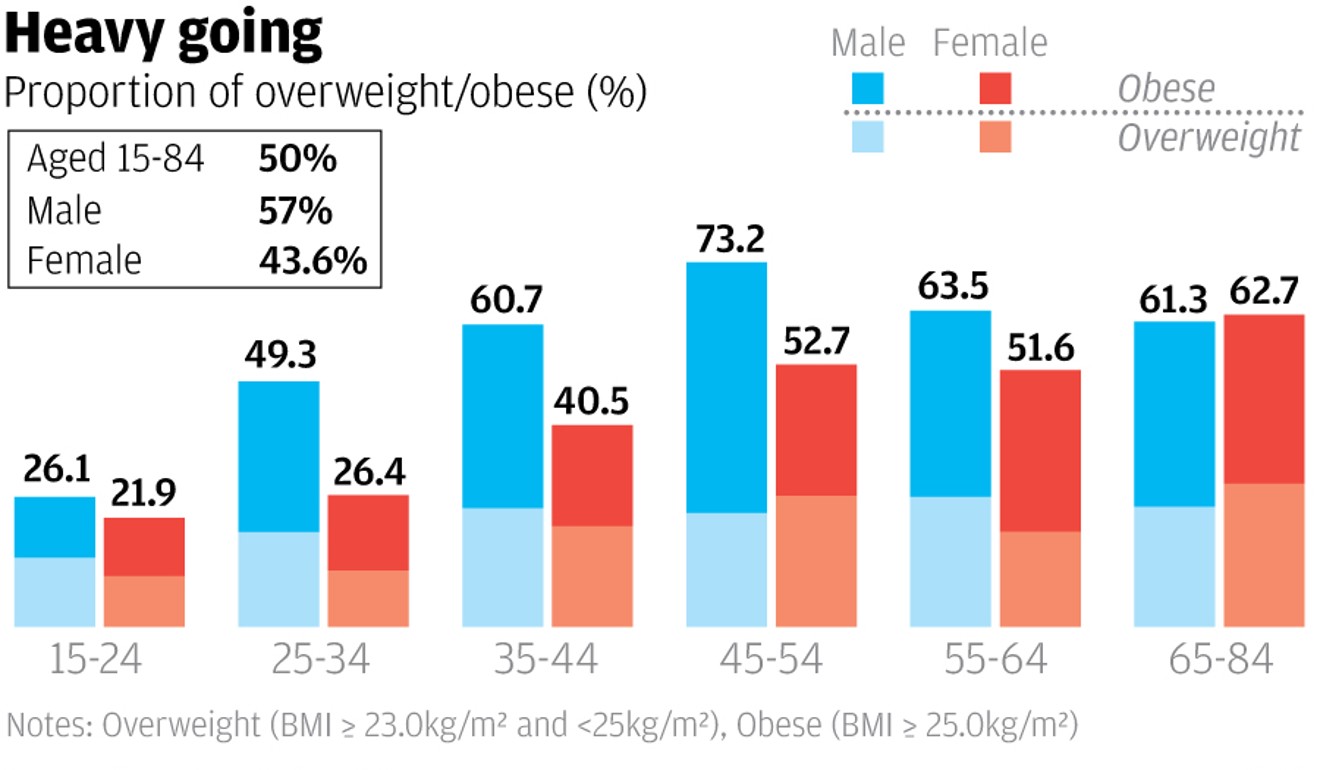
Unhealthy situation cries out for official action
With the increase in obesity and the health risks it poses, the Hong Kong government must explore more effective measures to curb the trend as a matter of urgency
If a medical report with a tick next to almost all common health problems is disturbing, the latest health study on Hongkongers by the Department of Health should give no reason for relief. That our lifestyle and diets have taken a heavy toll on public health is so well known that there is probably no need for more evidence. Yet the situation continues to worsen, despite efforts to promote healthy living over the past decade. Officials must explore more effective measures to curb the trend as a matter of urgency.

Indeed, there is no shortage of studies and campaigns to highlight the importance of moderation and restraint in eating, and that regular exercise is needed to maintain a healthy body. But the message obviously needs to be amplified in light of the latest findings.
Equally worthy of concern is the high percentage of obesity and risk of cardiovascular disease among low-income groups. Based on a risk assessment model, some 36.4 per cent of those with a monthly household income of less than HK$5,000 were classified as high-risk, compared to the corresponding proportion of 10 per cent among those with a monthly household income of HK$50,000 or more. There is a suggestion that the poor become more vulnerable as they may not be able to afford healthier food. Officials should monitor the situation to see whether policy intervention is required.
The government, to its credit, has set out action plans to encourage less intake of salt, sugar and oil. Whether education and promotion alone can instil behavioural change remains to be seen. The government should not rule out more stringent options, such as legislation and taxation, in light of the situation.

